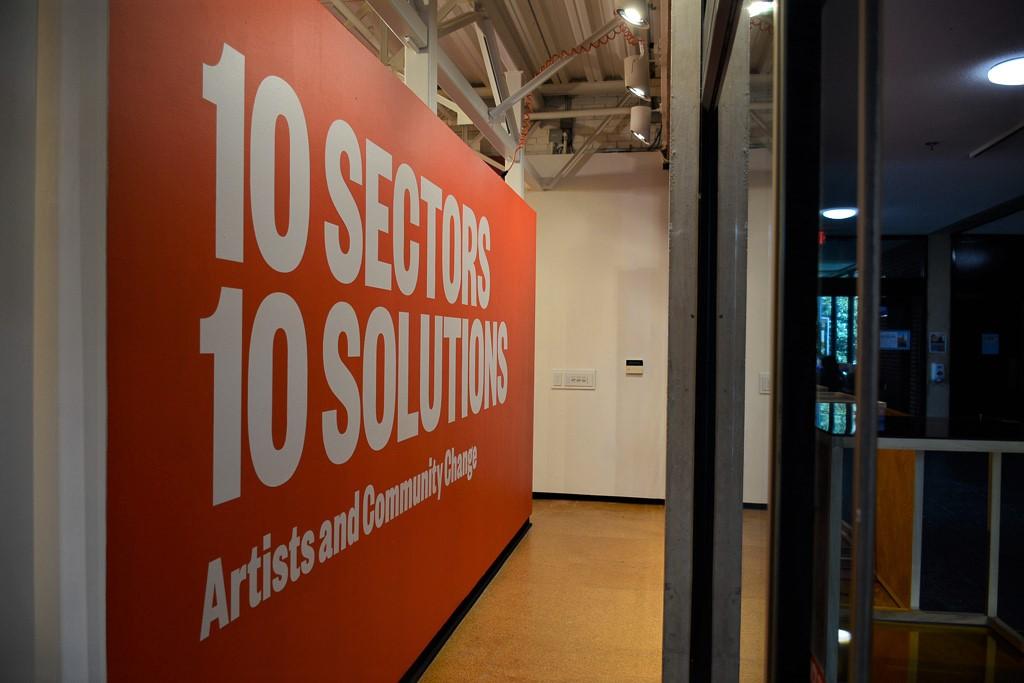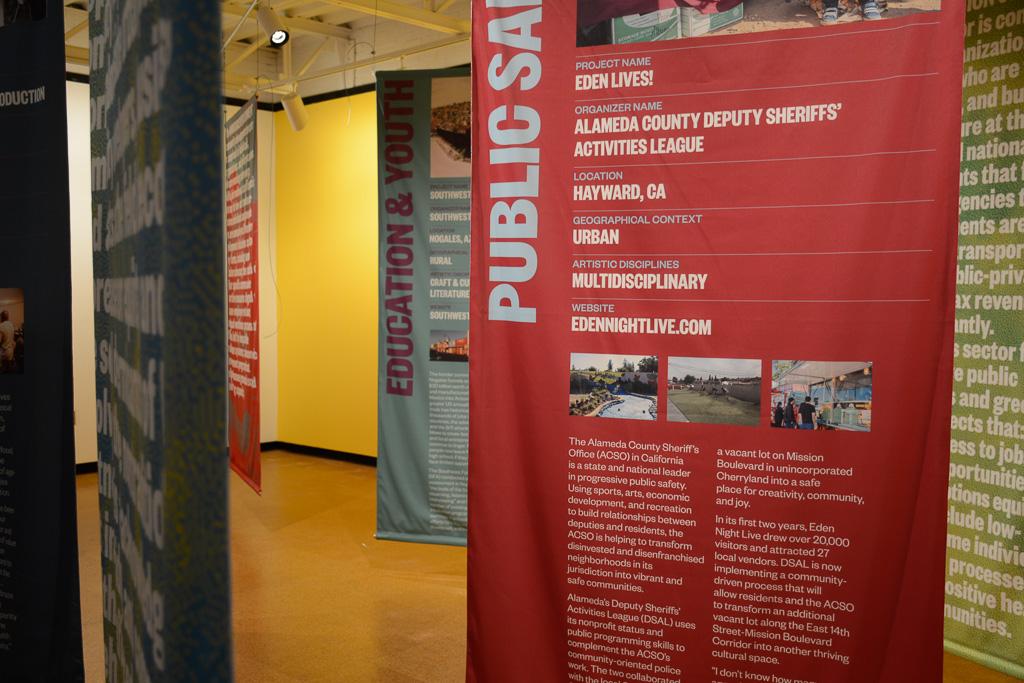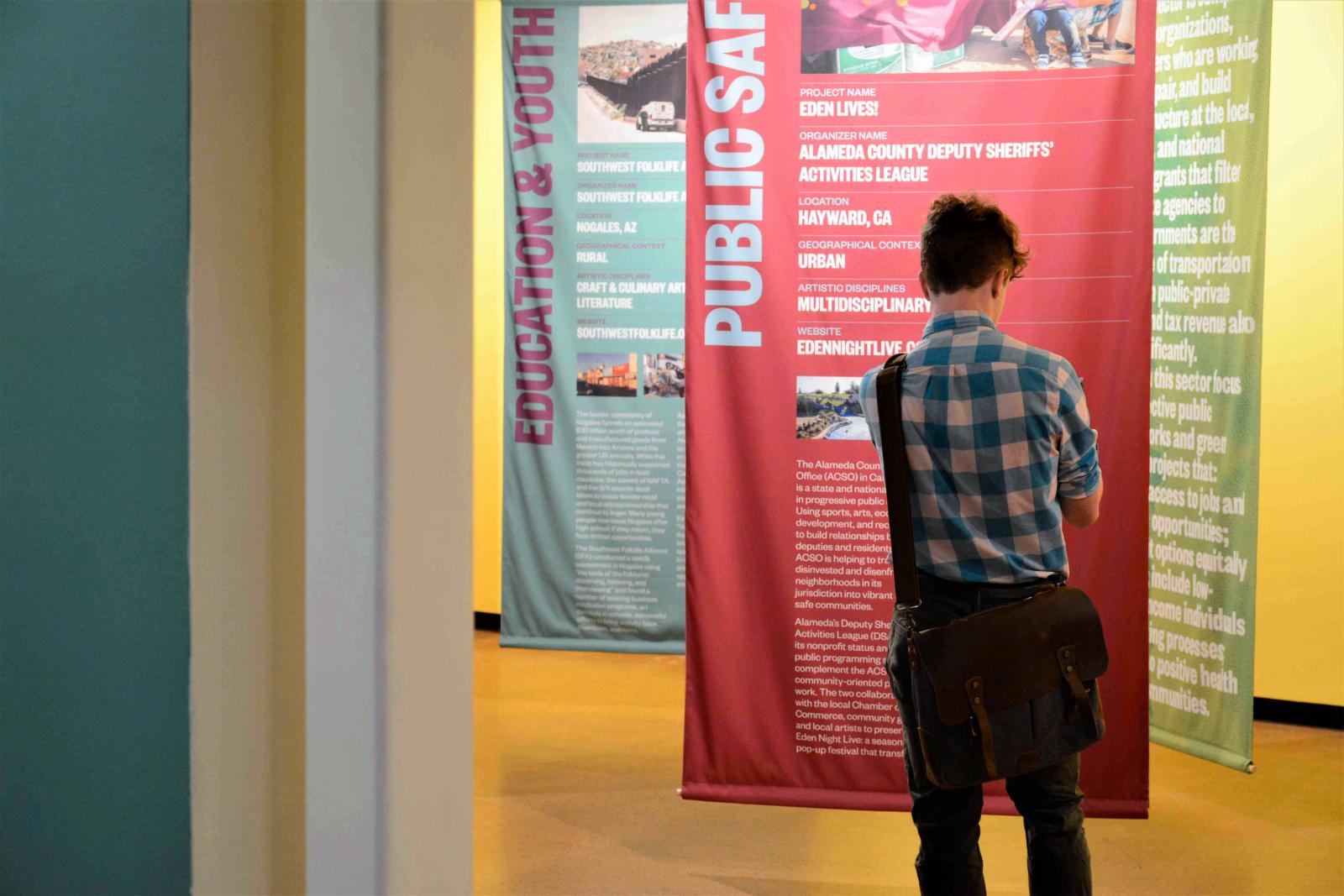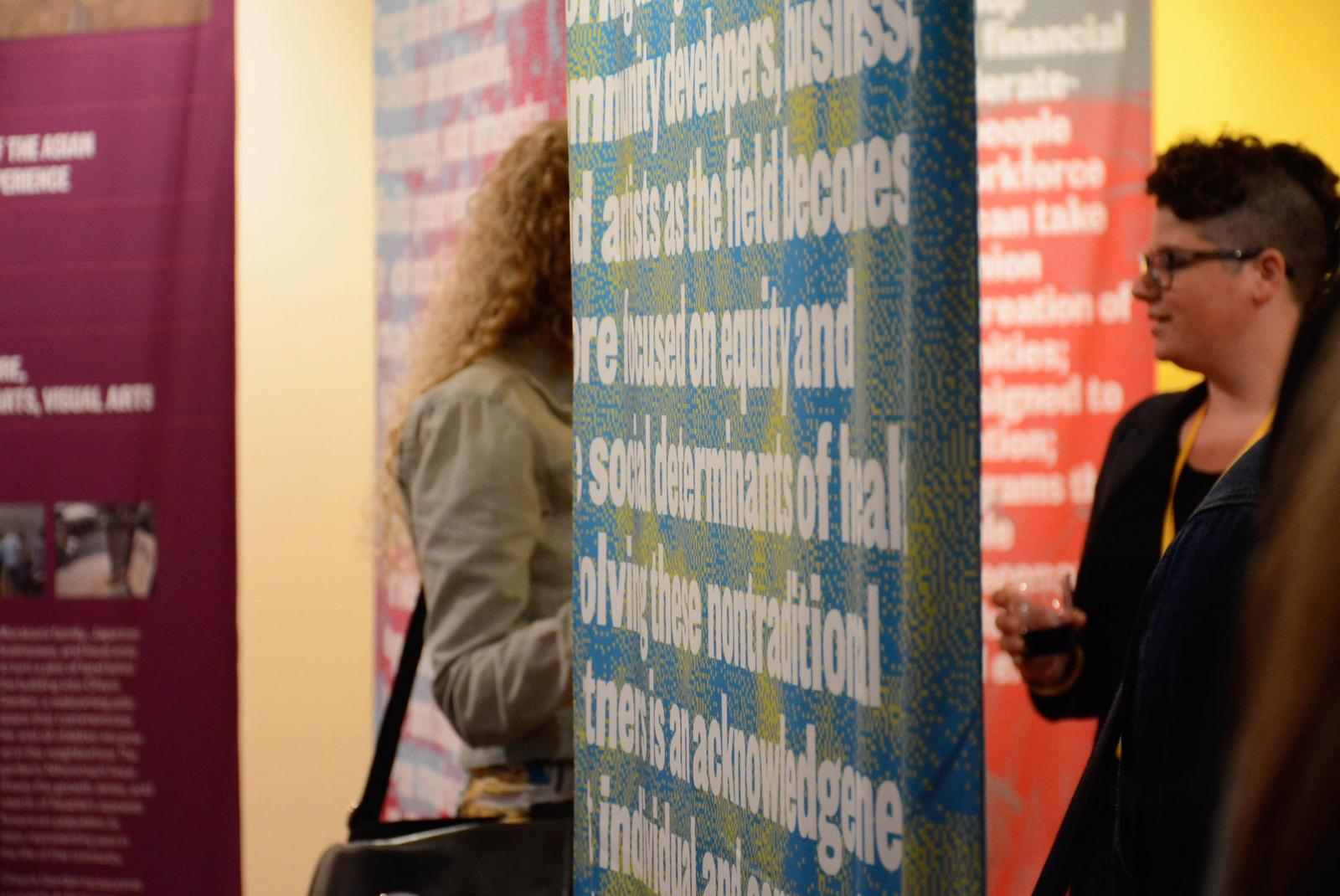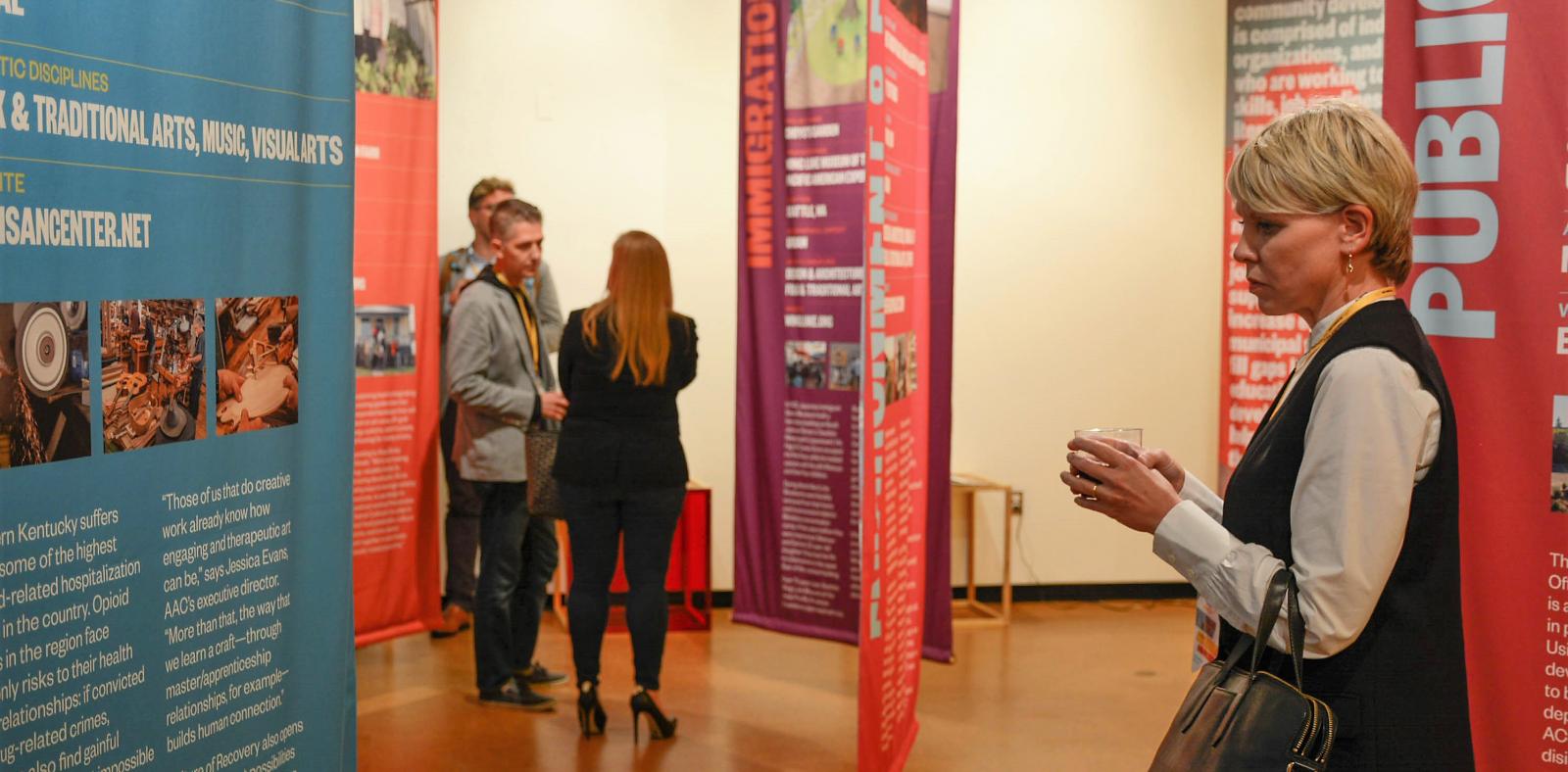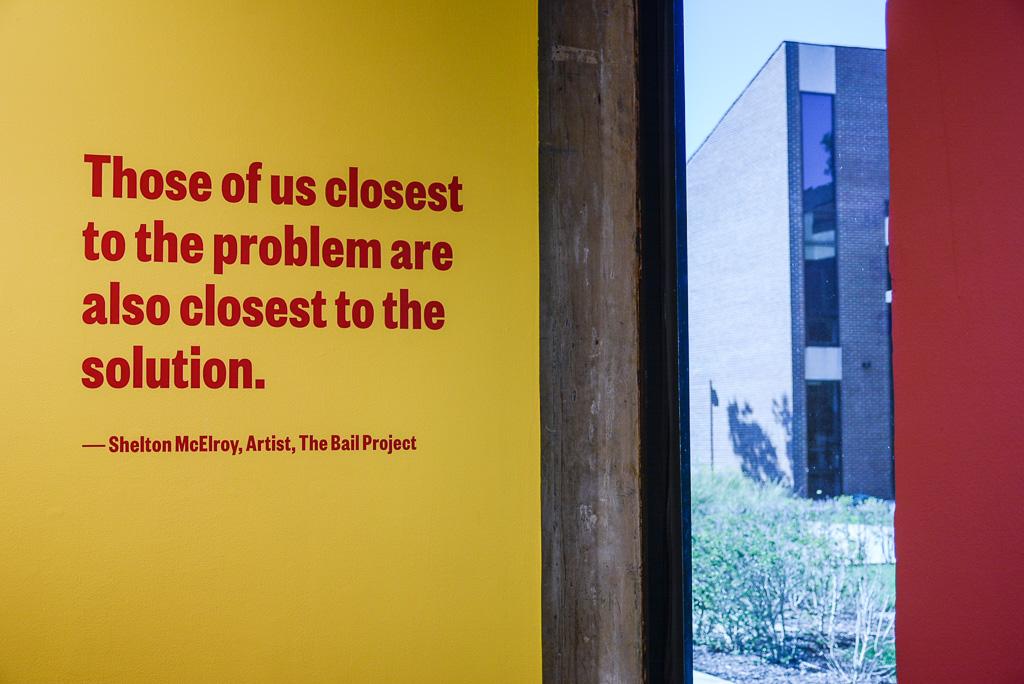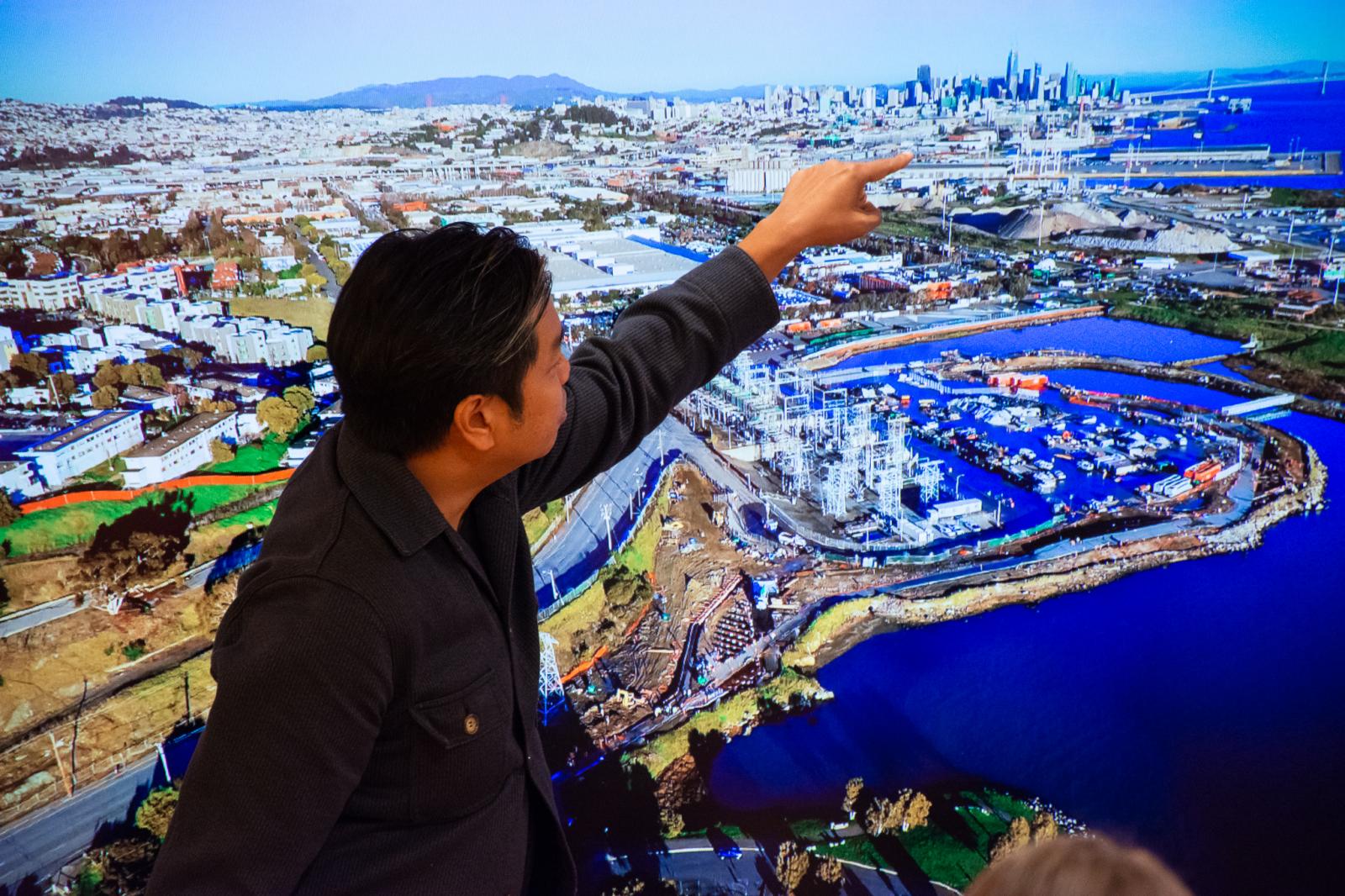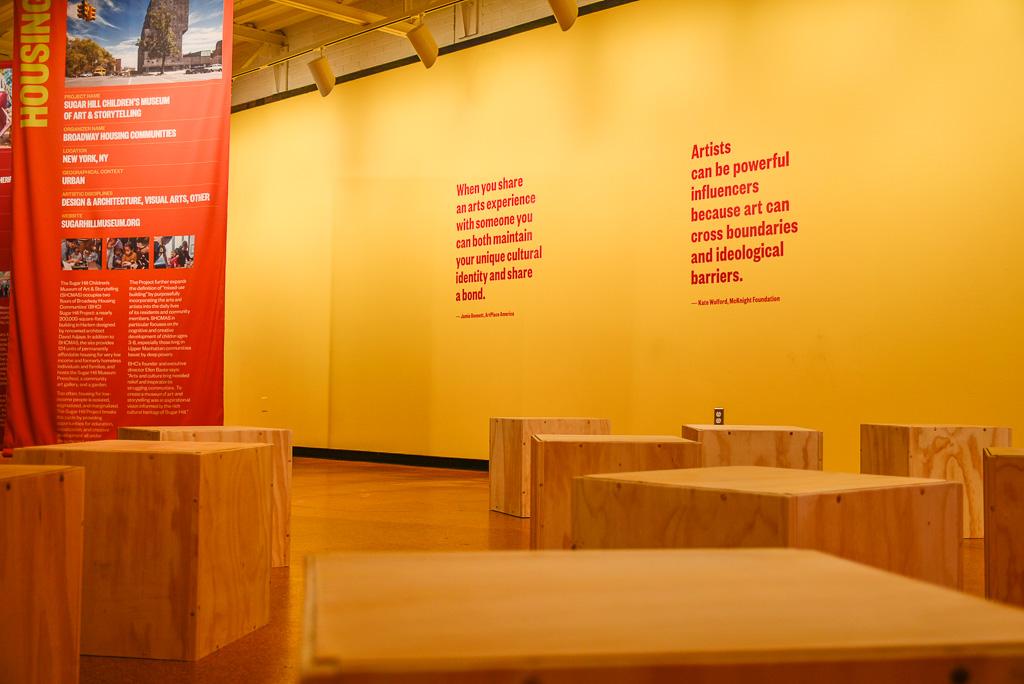3835 Campus Drive
Architecture Building (145 ARC)
College Park, MD 20742
United States
GALLERY WORKSHOP:
Friday, November 9th
12-2 pm
Kibel Gallery
Kibel Gallery Talk: Identity, Space, Program, Place
10 Sectors, 10 Solutions: Artists and Community Change
Overview
Many traditional planning and development efforts have fallen short of delivering equitable, healthy, sustainable outcomes in communities.
In response, artists and arts organizations across the United States are developing the kinds of human-centered, contextual, adaptive solutions that can strengthen their communities from within.
This exhibition highlights 10 creative placemaking projects from across the country, each supported by ArtPlace America, each addressing a community need, and each working within a traditional community planning and development sector: Agriculture & Food, Economic Development, Education & Youth, Environment & Energy, Health, Housing, Immigration, Public Safety, Transportation, and Workforce Development.
Introduction
Creative placemaking happens when artists and arts organizations join their neighbors in shaping their community’s future—working together to produce beneficial, place-based outcomes. This practice is at its best when it is locally defined and informed and centers the people who live, work, and play in a place.
The term “creative placemaking” was introduced to American communities in 2010 through a white paper Ann Markusen and Anne Gadwa Nicodemus wrote for the Mayors’ Institute on City Design. While artists’ involvement in building communities stretches back to the earliest civilizations around the world, this paper summarized two decades of creative placemaking in the United States, with an emphasis on the role of the arts in livability and economic development.
Over time, practitioners of creative placemaking have increasingly pushed the boundaries of traditional community planning and development and have demonstrated the effectiveness of building creative, cross-sector, interdisciplinary solutions to local challenges. To support and advance this way of working, ArtPlace America (ArtPlace) was established as a collaboration among a number of foundations, federal agencies, and financial institutions to position arts and culture as a core sector of community planning and development.
Today, as the field of creative placemaking rapidly grows in cities, towns, and rural areas across the United States, the conversation has grown to encompass many other ways arts and culture can address community planning and development issues.
The people and organizations who do this work are also more diverse than ever: they operate across sectors, strive to achieve a range of human-centered outcomes, and include everyone from residents to artists to teachers to professional community planners.
ArtPlace has organized much of the work of community planning and development into 10 core sectors that show the variety of areas in which arts and culture can contribute to positive place-based outcomes:
Agriculture & Food
Economic Development
Education & Youth
Environment & Energy
Health
Housing
Immigration
Public Safety
Transportation
Workforce Development
Inherent in each of these 10 sectors are specific goals and desired outcomes, and a particular set of strategies and tactics to achieve them. Having made investments of over $100 million in this work since 2011, ArtPlace is growing the field of creative placemaking through demonstration projects, meaningful investments in organizational change, and catalytic research. By exploring how arts and culture have been and might be allies in helping to reach community development goals, ArtPlace aims to develop open processes, shared languages, and common aspirations, so that communities across the country can benefit from the powerful, cross-sector synergies today’s creative placemaking practitioners are generating.
Creative placemaking does not necessarily seek to make places more “creative”—instead, it empowers residents, artists, and planners to creatively addresslocal challenges and opportunities. ArtPlace measures creative placemaking success by the ways artists, formal and informal arts spaces, and creative interventions contribute to sustainable beneficial outcomes for communities.
Organizers
This exhibition is organized by ArtPlace America and co-presented with the Kibel Gallery at the University of Maryland.
Curators:
Adam Erickson, ArtPlace America
Ronit Eisenbach, University of Maryland
Exhibition Design: Manuel Miranda Practice
About ArtPlace America
ArtPlace America (ArtPlace) is a 10-year collaboration among a number of foundations, federal agencies, and financial institutions. Beginning work as an organization in 2011, and finishing in 2020, its mission is to position arts and culture as a core sector of community planning and development.
About the Kibel Gallery
The Kibel Gallery plays a vital role in the life of the School of Architecture, Planning & Preservation at the University of Maryland. Exhibitions relating to the school’s four disciplines are chosen for their potential to spark dialogue about the built environment and for their celebration of exemplary professional and student work.
Kibel Gallery Design Team:
Eric Bos, Heather Summers, Philip Dayao, Paula Nasta, Ronit Eisenbach
About Manuel Miranda Practice
Manuel Miranda Practice (MMP) uses graphic design to make places and content visible, legible, and navigable to people. In addition to studio practice, Manuel Miranda is a critic at the Yale School of Art and a member of New York City's Public Design Commission. MMP is based in the Lower East Side of New York City.
Project List
Project Name: Appalachian Artisan Center of Kentucky, Inc.
Organizer Name: Appalachian Artisan Center of Kentucky, Inc.
Location: Hindman, KY
Geographic Context: Rural
Sector: Health
Artistic Discipline(s): Folk & Traditional Arts, Music, Visual Arts
Website: http://www.artisancenter.net/
Project Name: Chiyo's Garden
Organizer Name: Wing Luke Museum of the Asian Pacific American Experience
Location: Seattle, WA
Geographic Context: Urban
Sector: Immigration
Artistic Discipline(s): Design & Architecture, Folk & Traditional Arts, Visual Arts
Website: http://www.wingluke.org/
Project Name: Detroit Cultivators
Organizer Name: Oakland Avenue Urban Farm
Location: Detroit, MI
Geographic Context: Urban
Sector: Agriculture & Food
Artistic Discipline(s): Multidisciplinary
Website: http://www.oaklandurbanfarm.org/
Project Name: Eden Lives!
Organizer Name: Alameda County Deputy Sheriffs' Activities League
Location: Hayward, CA
Geographic Context: Urban
Sector: Public Safety
Artistic Discipline(s): Multidisciplinary
Website: www.artplaceamerica.org/funded-projects/eden-lives
Project Name: The Fargo Project: World Garden Commons
Organizer Name: City of Fargo
Location: Fargo, ND
Geographic Context: Urban
Sector: Environment & Energy
Artistic Discipline(s): Design & Architecture, Folk & Traditional Arts, Visual Arts, Other
Website: www.thefargoproject.com
Project Name: New Hampshire Ave: This Is a Place To...
Organizer Name: Dance Exchange
Location: Takoma Park, MD
Geographic Context: Suburban
Sector: Transportation
Artistic Discipline(s): Dance, Visual Arts
Website: http://danceexchange.org/
Project Name: Rolling Rez Arts Mobile Unit
Organizer Name: First Peoples Fund
Location: Kyle, SD
Geographic Context: Rural
Sector: Workforce Development
Artistic Discipline(s): Folk & Traditional Arts
Website: http://www.firstpeoplesfund.org/rolling-rez-arts/
Project Name: Sipp Culture
Organizer Name: Mississippi Center for Cultural Production
Location: Utica, MS
Geographic Context: Rural
Sector: Economic Development
Artistic Discipline(s): Film & Media, Other
Website: www.sippculture.com
Project Name: Southwest Folklife Alliance
Organizer Name: Southwest Folklife Alliance
Location: Nogales, AZ
Geographic Context: Rural
Sector: Education & Youth
Artistic Discipline(s): Craft & Culinary Arts, Film & Media, Literature
Website: https://www.southwestfolklife.org/
Project Name: Sugar Hill Children's Museum of Art & Storytelling
Organizer Name: Broadway Housing Communities
Location: New York, NY
Geographic Context: Urban
Sector: Housing
Artistic Discipline(s): Design & Architecture, Visual Arts, Other
Website: http://www.sugarhillmuseum.org/

